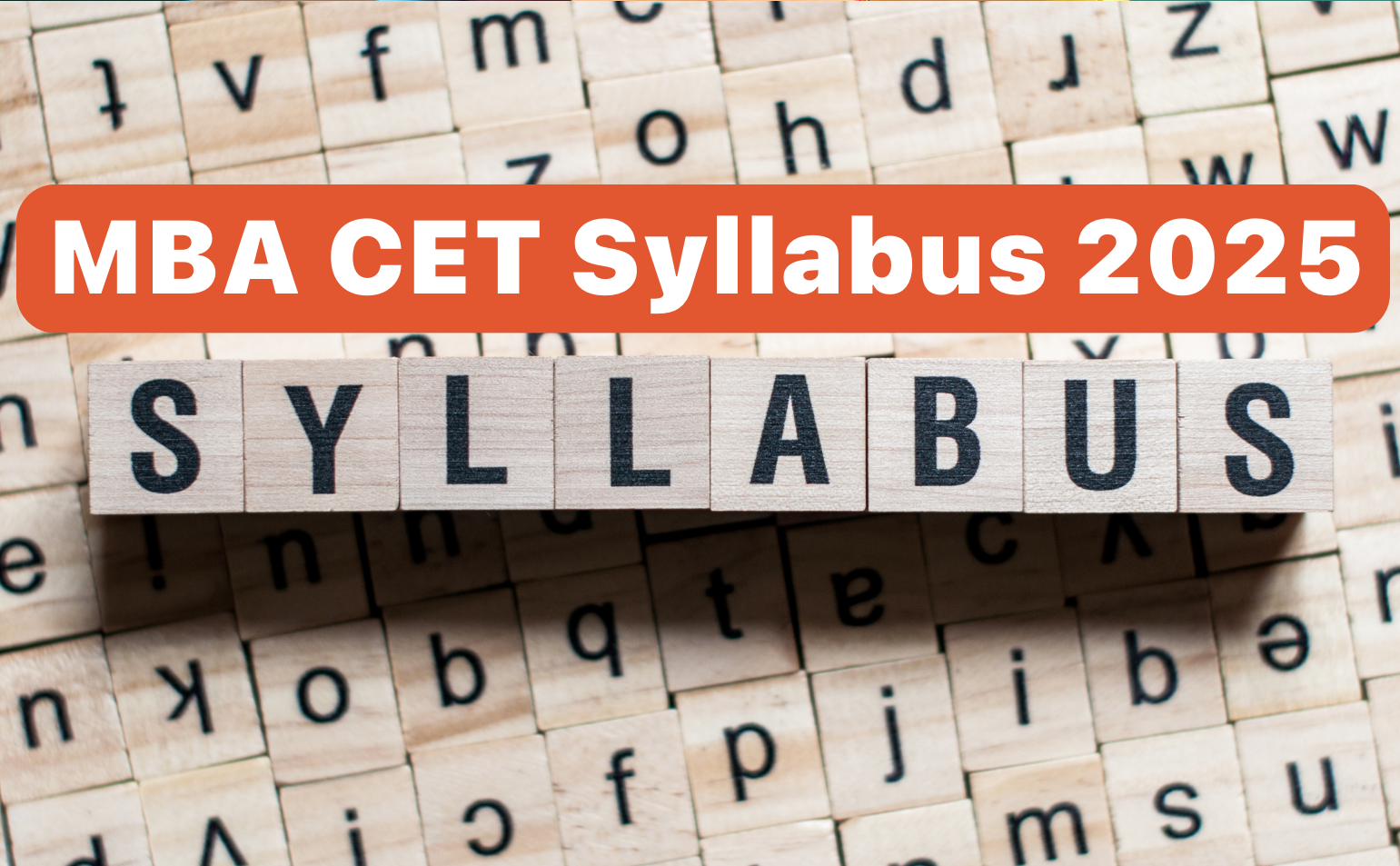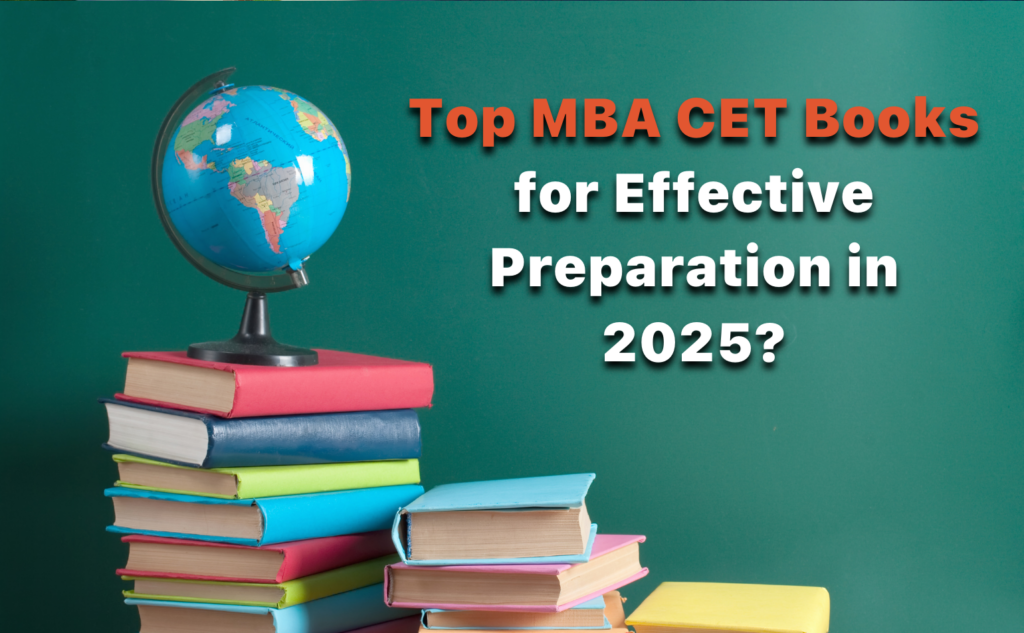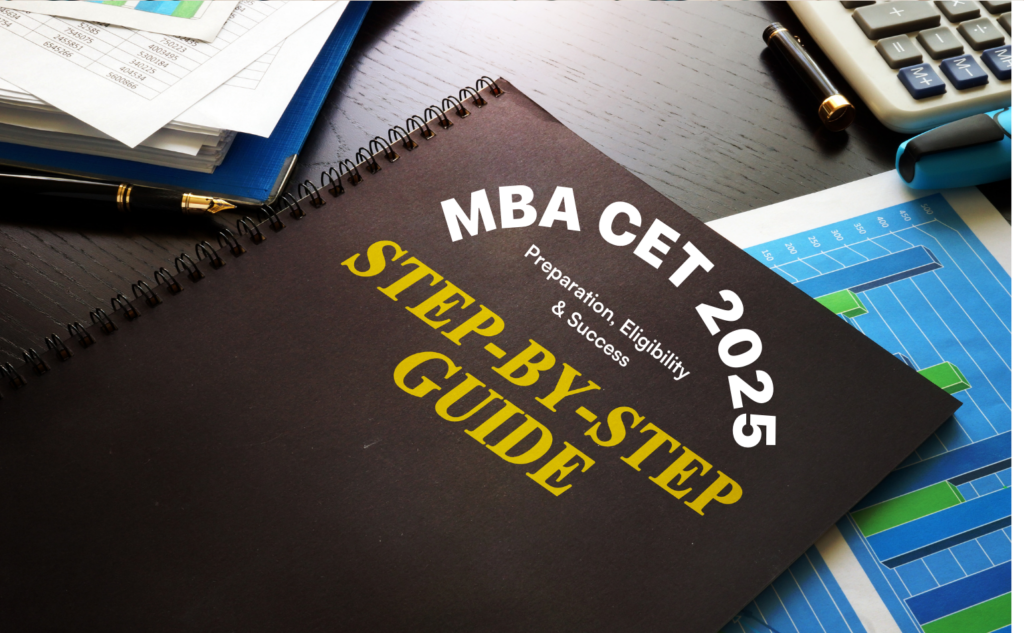Mastering the Key Areas and Strategic Preparation for the MBA CET 2025 Exam
The MBA CET exam is a crucial milestone for aspiring management professionals. As one of the most competitive entrance exams, it serves as a gateway to prestigious business schools, opening doors to a promising career in management. Success in this exam requires not just hard work, but a deep understanding of the MBA CET syllabus for 2025.
This comprehensive guide will help you navigate the syllabus, offering insights into each section and providing practical strategies for effective preparation. Whether you’re at the beginning of your journey or fine-tuning your study plan, this blog will equip you with the knowledge and tools needed to excel in the MBA CET exam.
“Tarkashastra made my MBA CET registration seamless with their guidance and resources at every step.”
Join our classes today.
Add Your Heading Text Here
What are the components of the MBA CET Syllabus for 2025?
The MBA CET or MAH MBA CET syllabus covers a broad range of topics across four main sections, each designed to assess different aspects of your aptitude. Familiarity with these sections will enable you to create a focused and strategic study plan. The syllabus is divided into four core sections:
- Logical Reasoning
- Abstract Reasoning
- Quantitative Aptitude
- Verbal Ability/Reading Comprehension
Each section is structured to evaluate specific skills that are crucial for success in the MBA programme. Let’s delve deeper into each section to understand the key topics, their significance, and how you can prepare effectively.
Detailed Breakdown of the MBA CET Syllabus
1. Logical Reasoning: The Core of Analytical Thinking
Logical reasoning forms the backbone of the MBA CET exam syllabus. This section is designed to assess your ability to think critically, analyse situations, and solve problems under pressure. Logical reasoning questions require not only a sharp mind but also the ability to work quickly and efficiently. Success in this section can significantly boost your overall score, making it a vital area to master.
Key Topics:
- Syllogisms
- Seating Arrangements
- Blood Relations
- Coding-Decoding
- Data Sufficiency
- Assumptions and Conclusions
- Input-Output
Preparation Tips:
- Understand Different Types of Questions: Familiarise yourself with various question types like syllogisms, analogies, and series completion. Each type requires a different approach, so it’s important to practise them individually.
- Practise Regularly: Consistent practice is key to building speed and accuracy. Dedicate time daily to solving different logical reasoning problems, ensuring you cover all the essential topics.
- Review Solutions: Analysing solutions helps you understand the reasoning behind correct answers, refining your problem-solving approach and improving your accuracy.
2. Abstract Reasoning: Visual and Analytical Skills
Abstract reasoning is a unique aspect of the MBA CET entrance exam syllabus that tests your ability to analyse visual information and recognise patterns. Unlike other sections that focus on verbal or numerical data, abstract reasoning challenges you to think outside the box. This section assesses your ability to work with shapes, patterns, and logical sequences, skills that are crucial in the fast-paced environment of business decision-making.
Key Topics:
- Series Completion
- Pattern Recognition
- Analogies
- Matching Pairs
Preparation Tips:
- Use Visual Learning Tools: Engage with mind maps, flowcharts, and visual aids to enhance your pattern recognition skills. These tools can help you understand the relationships between different elements more clearly.
- Leverage Online Resources: Websites like GeeksforGeeks and YouTube channels focused on competitive exams offer valuable practice material and explanations. Regular practice with these resources will sharpen your abstract reasoning abilities.
- Practise Regularly: Utilise mobile apps designed for abstract reasoning to build your skills gradually. Regular practice will improve your speed and accuracy in identifying patterns and solving abstract reasoning problems.
3. Quantitative Aptitude: Mathematical Competency
Quantitative Aptitude is a crucial section in the MAH CET MBA syllabus, assessing your numerical ability and problem-solving skills. This section requires a strong grasp of basic mathematical concepts, as well as the ability to apply these concepts in various scenarios. The topics covered in this section are fundamental to many areas of business, including finance, operations, and analytics. Excelling in Quantitative Aptitude can significantly enhance your overall score, making it an essential area to focus on during your preparation.
Key Topics:
- Averages
- Percentages
- Time and Work
- Ratio and Proportion
- Mixtures and Alligation
- Simple and Compound Interest
- Time, Speed, and Distance
- Profit and Loss
- Pipes and Cisterns
- Algebra
Preparation Tips:
- Strengthen Basics: Ensure you have a solid understanding of fundamental concepts, especially in arithmetic and algebra. These topics form the foundation for more complex problem-solving in this section.
- Focus on High-Scoring Topics: Prioritise topics like percentages, ratios, and time and work, which are generally easier and carry significant weight in the exam. Mastering these areas can give you an edge in the Quantitative Aptitude section.
- Practise with a Variety of Problems: Cover all key topics thoroughly, focusing on those that are considered essential and scoring. Regular practice with a variety of problems will enhance your problem-solving speed and accuracy.
4. Verbal Ability/Reading Comprehension: Command Over Language
Verbal Ability and Reading Comprehension are critical components of the MBA CET exam syllabus that test your proficiency in the English language. This section is designed to assess your ability to understand, interpret, and analyse written information, which is essential for effective communication in the business world. Strong verbal skills are not only crucial for the exam but also for your future career in management, where clear and concise communication is key.
- Key Topics:
- Reading Comprehension
- Grammar and Sentence Correction
- Vocabulary (Synonyms, Antonyms)
- Paragraph Jumbles
- Error Detection
Preparation Tips:
- Read Regularly: Engage with a variety of texts, including newspapers, magazines, and novels, to improve vocabulary and comprehension. Regular reading will expose you to different writing styles and enhance your understanding of complex texts.
- Practise Grammar: Focus on grammar rules and practice exercises to strengthen your foundational skills. A solid grasp of grammar will help you avoid common mistakes and improve your accuracy in sentence correction and error detection.
- Build Vocabulary: Use flashcards or vocabulary apps to learn new words daily. A strong vocabulary is essential for tackling synonym and antonym questions, as well as improving your overall reading comprehension.
- Analyse Mistakes: Review incorrect answers to identify and address weaknesses. Understanding where you went wrong will help you avoid similar mistakes in the future and improve your overall performance.
How to Prepare Effectively for the MBA CET Syllabus?
Preparation for the MBA CET complete syllabus requires more than just covering the topics; it demands a strategic and disciplined approach. Here’s how you can optimise your preparation to ensure success.
1. Creating a Structured Study Plan
A well-organised study plan is crucial for covering the extensive MBA CET exam syllabus efficiently. Your study plan should be comprehensive, allowing you to cover all sections while also focusing on areas where you need improvement.
- Daily Targets: Set specific goals for each day, focusing on one section at a time to ensure comprehensive coverage. Breaking down the syllabus into manageable daily tasks will help you stay on track and avoid last-minute cramming.
- Weekly Reviews: Regularly assess your progress, making adjustments to your study plan as needed. Weekly reviews will help you identify areas where you need to focus more attention and ensure that you are on track to cover the entire syllabus.
2. Leveraging Quality Study Resources
Choosing the right study materials is vital for effective preparation. Quality resources will provide you with the practice and knowledge needed to excel in each section of the syllabus.
- Recommended Books:
At Tarkashastra, we offer comprehensive study materials for the MBA CET 2025, meticulously updated based on previous examinations to support MBA aspirants. Our books encompass the entire syllabus and each exam section, featuring practice questions to enhance analytical skills.
Some of the recommended books for MBA CET preparation are:
- MH-CET (MBA/ MMS) Entrance Guide by Disha Publications
- 50+ Solved Papers MBA by Arihant Publications
- Maharashtra MBA MH-CET by Arihant Publications
- The Pearson Guide to CET: MBA Maharashtra by Vandana Thorpe
- Target MHCET (MBA/MMS) – Past papers + 6 Mock Tests by Disha Publications
- Maharashtra MBA CET Guide by RPH Editorial Board
- Word Power Made Easy by Norman Lewis
- High School English Grammar by Wren & Martin
- How to Prepare for Verbal Ability and Reading Comprehension for CAT by Arun Sharma
- How to Prepare for Quantitative Aptitude for CAT by Arun Sharma
- How to Prepare for Logical Reasoning for CAT by Arun Sharma
Online Resources: Enrol in online courses that offer video lectures, practice questions, and mock tests tailored to the MBA CET syllabus. These resources provide flexibility and allow you to study at your own pace.
3. Practising with Mock Tests
Mock tests are essential for gauging your readiness and improving your time management skills. They simulate the actual exam environment, helping you build the stamina and focus needed to perform well on exam day.
- Simulate Exam Conditions: Take timed mock tests to simulate the actual exam environment. This practice will help you get used to the pressure and timing constraints of the exam.
- Analyse Performance: Review your mock test results to identify areas where you need further practice. Understanding your strengths and weaknesses will allow you to adjust your study plan and focus on areas that need improvement.
4. Managing Time Effectively During the Exam
Time management is crucial during the exam. Here’s how to optimise your approach to ensure you complete all sections within the allotted time.
- Allocate Time Wisely: Before the exam, decide how much time to spend on each section based on the number of questions and difficulty. Having a clear time management plan will help you stay on track during the exam.
- Stick to Your Plan: Use a timer to ensure you adhere to your pre-set time limits for each section. Sticking to your time management plan is essential for completing all sections within the given time.
- Skip and Return: If you encounter a difficult question, skip it and return later if time allows. This strategy will help you avoid getting stuck on challenging questions and ensure that you have enough time to complete the entire exam.
Conclusion
The MBA CET syllabus for 2025 is comprehensive and challenging, but with the right approach, it is entirely manageable. By focusing on key topics, leveraging high-quality resources, and practising regularly, you can build a strong foundation for success in the exam. Effective time management and strategic planning will further enhance your preparation.
For those looking to gain an extra edge, Tarkashastra Academy offers expert guidance tailored to the MAH MBA CET exam. With our experienced faculty, structured study plans, and comprehensive resources, you’ll have everything you need to excel and secure a spot in a top business school.
Prepare with confidence and let Tarkashastra be your partner in achieving your MBA aspirations!
FAQs
-
1. What topics are included in the MBA CET syllabus for 2025?
The MBA CET syllabus includes Logical Reasoning, Abstract Reasoning, Quantitative Aptitude, and Verbal Ability/Reading Comprehension.
-
2. How is the MBA CET syllabus structured and divided?
The syllabus is divided into four sections, each focusing on different skill sets: Logical Reasoning, Abstract Reasoning, Quantitative Aptitude, and Verbal Ability/Reading Comprehension.
-
3. Are there any changes to the MBA CET syllabus for 2025 compared to previous years?
As of now, there are no significant changes announced for the MBA CET syllabus for 2025 compared to previous years.
-
4. What are the key areas to focus on within the MBA CET syllabus for 2025?
Key areas include Logical Reasoning and Quantitative Aptitude, which typically carry more weight. Candidates should also focus on strengthening their verbal and abstract reasoning skills.
-
5. How can I create a study plan based on the MBA CET syllabus for 2025?
Structure your study plan by setting daily and weekly targets, focusing on one section at a time, and integrating regular mock tests to track your progress.
-
6. What study materials are recommended for covering the MBA CET syllabus for 2025?
At Tarkashastra, we offer books for the CET exam for MBA aspirants. Our books cover the entire syllabus and each exam section, with practice questions to match the exam's complexity and improve analytical skills. Expert-curated, these resources prepare you to tackle the exam confidently.







